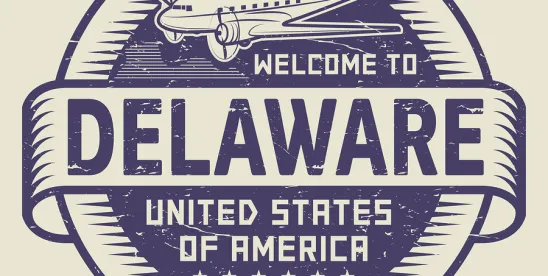In the statutory appraisal proceeding, In re Appraisal of Columbia Pipeline Group, Inc., Cons. C.A. No. 12736-VCL (Del. Ch. August 12, 2019), the Delaware Court of Chancery determined that the fair value of Columbia Pipeline Group, Inc. (“Columbia” or the “Company”) common stock at the effective date of acquisition by TransCanada Corporation (“TransCanada”) was the deal price of $25.50 per share, not the $32.47 per share price proposed by the petitioners. The petitioners argued that the Court should determine fair value using the discounted cash flow method (“DCF”), while TransCanada proposed use of the deal price minus synergies and Columbia’s unaffected trading price as valuation indicators. The Court ruled the sale process in this case was sufficiently reliable to make the deal price a persuasive indicator of fair value.
This appraisal action concerns TransCanada’s acquisition of Columbia on July 1, 2016 (the “Merger”). Pursuant to the Merger agreement, each share of Columbia common stock was converted into the right to receive $25.50 in cash, subject to each stockholder’s right to forego the consideration and seek appraisal.
In an appraisal proceeding, the Court has the obligation to determine the fair value of the shares, and both sides have the burden of proving their respective valuation positions by a preponderance of the evidence. The Court may select one of the parties’ valuation models, may fashion a combination of the models, or may develop its own method entirely. The Court is required to take into consideration all factors and elements which reasonably might enter into the fixing of value such as market value, dividends, and earning prospects. The Court’s goal is to determine the fair or intrinsic value of each share to the stockholder on the closing date of the merger. The Court must assess the value of the company as a going concern, rather than its value to a third party as an acquisition.
The Court introduced three recent decisions of the Delaware Supreme Court that endorsed using deal price in an arms-length transaction as evidence of fair value and discussed various aspects of the sale process in each case that made deal price a reliable indicator. First, in In re Appraisal of DFC Glob. Corp. v. Muirfield Value P’rs, 172 A.3d 346 (Del. 2017), the Supreme Court noted that deal price is probative of fair value when the price of a merger results from a robust market check, against the back drop of a rich information base and a welcoming environment for potential buyers. In DFC, the deal price resulted from an open process with market search that lasted approximately two years and involved every logical buyer, and the company was purchased by a third party without a hint of conflict of interest. Second, in In re Appraisal of Dell Inc. (Dell Trial), 177 A.3d 1 (Del. 2017), the Supreme Court reversed a trial court decision that assigned no mathematical weight to deal price when the sale process featured fair play, low barriers to entry, and outreach to logical buyers. Additionally, a special independent committee ran the sale process and persuaded the buyer to raise its bid multiple times. The post-signing process in Dell also featured a flexible go-shop structure. In Dell, the Supreme Court stressed the absence of evidence that another party was interested in proceeding with a purchase. Third, in Verition Partners Master Fund Ltd. v. Aruba Networks, Inc.,210 A.3d 128 (Del. 2018), the Supreme Court found deal price was reliable noting that a buyer in possession of material nonpublic information about the seller is in a strong position to properly value the seller when agreeing to buy the company at a particular deal price, and the buyer’s view of value should be given considerable weight by the Court.
In the present case, the Court applied these precedents and determined that the Merger was an arm’s-length transaction and that the sale process was sufficiently reliable to make the deal price a persuasive indicator of fair value. The Court outlined the following factors: TransCanada was a pure outsider with no prior stock ownership in Columbia, and the Columbia Board did not labor under any conflicts of interest; TransCanada, like the acquirer in Aruba, conducted due diligence and received confidential insights about Columbia’s value; Columbia contacted other potential buyers, and those parties failed to pursue a merger when they had the chance to do so; Columbia negotiated with TransCanada and extracted multiple price increases; and in the post-signing phase of the transaction, no bidders emerged even though the deal protections in the merger agreement fell within market norms.
The Court found that objective indicia outweighed any sale process shortcomings raised by the petitioners. The petitioners claimed that the Columbia CEO and CFO engineered a fire sale to obtain personal benefits and mislead the Board about the sale process, but the Court found that they had countervailing incentives to pursue the best deal and kept the Board informed. The petitioners argued that Columbia favored TransCanada over other potential buyers, but the Court found this was because TransCanada offered higher and more certain value than the alternatives, and that Columbia did target four other potential buyers in the pre-signing process. The petitioners also argued that deal protection measures (including standstills, a no-shop clause with a fiduciary out, and a termination fee) undermined the sale process, but the Court disagreed finding that while these provisions created obstacles for competing bidders, they did not undermine the sale process for appraisal purposes because the combination of deal protection measures would not have supported a claim for a breach of fiduciary duty. Overall, the court found that the facts of the case, when viewed as a whole, compared favorably with the facts in DFC, Dell, and Aruba.
The Court briefly considered TransCanada’s position that for a fair value determination the deal price should be adjusted downward to reflect inclusion of synergies arising from the deal itself, but found that TransCanada failed to prove the proposed $4.64 per-share value of the synergies. Additionally, the Court addressed the many arguments related to unaffected trading price by holding that reliable trading price is not a prerequisite to a reliable determination of fair value based on a deal-price-less synergies metric.
The Court also briefly addressed the petitioner’s argument for use of a discounted cash flows (“DCF”) method, noting that DCF analysis should be used in appraisal proceedings when market-based indicators are unavailable. In this case, Columbia was publicly traded, widely held, and sold in a process that began with pre-signing outreach and finished with an open post-signing market check. The petitioner’s DCF valuation was much higher than the deal price or unaffected trading price of Columbia stock, and the Court deemed DCF analysis a second-best method to derive value in a case where a reliable market-based metric was available.
In re Appraisal of Columbia Pipeline Group, Inc., memorandum opinion




 />i
/>i

